
In the Islamic faith, there are five essential beliefs that form the foundation of their religion. These beliefs, known as the Five Pillars of Islam, guide followers to lead a meaningful and devout life. Each pillar has its own significance and purpose, and together, they create a strong sense of community and devotion among Muslims worldwide.
To truly understand the faith of Islam, one must be familiar with the Five Pillars. These are the five essential acts that every Muslim is required to fulfill in order to live a fulfilling and meaningful life according to Islamic teachings.
The Five Pillars serve as a framework for Muslims to demonstrate their devotion and submission to Allah, the God of Islam. They also provide guidance on how to live a moral and ethical life, as well as fostering a sense of community among believers of other faiths.
Shahadah is the highest point of Islamic faith.This is the first and most important pillar of Islam, as it serves as a declaration of belief in the oneness of one God, (Allah) and the acceptance of Muhammad as His messenger. It is said that reciting the Shahada with sincerity and understanding its meaning is all it takes to convert to Islam.
The Shahada is “There is no god but Allah, and Muhammad is the messenger of Allah.”
Reference Ayat: Surah Al-Baqarah (2:255)
“Allah! There is no deity except Him, the Ever-Living, the Sustainer of existence…”
Prayer is the second pillar of Islam and is considered one of the most important acts in a Muslim’s daily life. It serves as a direct communication between an individual and Allah and is performed five times a day: at dawn, noon, mid-afternoon, sunset, and the evening prayer.
Muslims face towards the direction of Mecca (the holiest city in Islam) while performing their prayers and reciting verses from the Quran (the holy book of Islam).Prayer is not only a physical act, but also a mental and spiritual one. It serves as a way to purify the mind and soul, seek forgiveness, and strengthen one’s faith.
In addition to the five daily prayers, there are also special prayers that can be performed on specific occasions, such as during the holy month of Ramadan or on Fridays (the holiest day in Islam).Beyond the obligatory five daily prayers, known as Salah, Islam also emphasizes on additional voluntary prayers that are highly recommended. These supplementary prayers, termed Sunnah and Nafl, can be performed before or after the compulsory ones, providing Muslim individuals an opportunity to seek enhanced spiritual connection with their Creator.
Reference Ayat: Surah Al-Baqarah (2:45)
“And seek help through patience and prayer, and indeed, it is difficult except for the humbly submissive [to Allah].”
Fajr, the pre-dawn prayer, is the first of the day. Performed before sunrise, it’s a time for spiritual awakening and seeking divine guidance.
Zuhr, the midday prayer, is observed when the sun is at its zenith. It offers a moment of tranquility amid daily hustle.
Asir the afternoon prayer, takes place in the late part of the day. It serves as a spiritual checkpoint and reminder of God’s presence.
Maghrib, the sun sets prayer, follows immediately after dusk. This marks thanksgiving for another day spent under God’s protection.
Isha’a, night prayer concludes a Muslim’s daily worship cycle. The darkness amplifies its profound sense of peace and reflection.
Prayer is a way for Muslims to connect with Allah and seek guidance and blessings. It is seen as a form of worship and devotion, and brings a sense of peace and tranquility to one’s daily life.Through prayer, Muslims also remember the importance of gratitude, humility, and seeking forgiveness. It serves as a reminder to always stay connected with Allah and strive towards righteousness.
As a way to purify one’s wealth and give back to the community, Zakat (almsgiving) is mandatory for all Muslims who meet a certain threshold of wealth. It is considered as an act of worship and a means of helping those in need.
Muslims are encouraged to give Zakat throughout the year, but it is especially emphasized during the month of Ramadan, a holy month where Muslims fast from dawn to sunset and engage in acts of charity and spiritual reflection. Zakat can be given in various forms of muslim’s wealth such as money, food, or other possessions, with the intention of seeking Allah’s blessings and mercy.The amount of Zakat that one must give is based on their wealth and assets, with the standard rate being 2.5%. However, there are some exemptions and different rates for certain types of wealth such as agriculture or livestock.
Reference Ayat from holy qur’an: Surah Al-Baqarah (2:267)
“O you who have believed, spend from the good things which you have earned and from that which We have produced for you from the earth…”
Zakat is distributed among various categories including the poor, needy, orphans, travelers, and those in debt. It is also used to support Islamic educational institutions and other charitable causes. We’re here for you all year round, providing a convenient option to give your Zakat with ease. Convenitly make online donation to make a lasting impact whenever it suits you. Your contribution matters, and together, we can bring positive change to those in need
In addition to helping those in need, Zakat also serves as a reminder for Muslims to be grateful for their blessings and to not become attached to material possessions. Giving Zakat is not only beneficial for the recipient but also brings numerous rewards for the good deeds of the giver.
Sawm, or fasting, is the fourth pillar of Islam and is observed during the holy month of Ramadan. This period of deep spiritual reflection requires Muslims to abstain from eating, drinking, and other physical needs from dawn until sunset. Sawm represents a time for Muslims to purify their souls, refocus their attention on God, and practice self-sacrifice. It’s not just about abstaining from food and sexual activity but also includes refraining from sinful behaviours such as lying, gossiping, or fighting. The act of fasting serves to remind Muslims of their human frailty and dependence on God for sustenance. At the end of Ramadan, the fast is broken with a celebratory meal called ‘Eid ul-Fitr’, symbolizing gratitude towards God for the strength to complete the fast.
The fifth pillar of Islam, Hajj, is a pilgrimage to the holy city of Mecca in Saudi Arabia. Every adult Muslim who is physically and financially able is obliged to undertake this journey at least once in their lifetime. The annual event takes place during Dhu al-Hijjah, the final month of the Islamic lunar calendar.
Hajj involves several rites that are designed to honor the life of Prophet Abraham and his unwavering devotion to God. These include the Tawaf, where pilgrims circle around the Kaaba seven times in an anticlockwise direction; Sa’ee, which involves running or walking between the hills of Safa and Marwa in haram mosque to commemorate Hagar’s search for water; and standing at Mount Arafat in prayer from noon until sunset. The hajj rituals also include throwing pebbles at the three pillars symbolizing Satan, sacrificing an animal in remembrance of Abraham’s willingness to sacrifice his son, and shaving or cutting one’s hair as a sign of purification.
The Hajj is a profound manifestation of faith, uniting millions of Muslims from across the globe in their shared spiritual pursuit. It takes place annually during Dhu al-Hijjah, the last month of the Islamic lunar calendar. The religious journey holds immense significance and requires meticulous preparation and adherence to certain rites. believed that Adam and Eve were reunited here on Earth after being separated in Heaven. It is also where Prophet Abraham (Ibrahim) built the Kaaba, a sacred cube-shaped structure considered to be the House of God.
Surah Al Imran (3:97) states, “In it are clear signs [such as] the standing place of Abraham. And whoever enters it shall be safe. And [due] to Allah from the people is a pilgrimage to the House – for whoever is able to find thereto a way.”
The Hajj pilgrimage begins with the pilgrims entering into a state of purity and sanctity known as Ihram. This involves performing ablution (ritual cleansing) and wearing simple white garments for men and loose modest clothing for women, symbolizing equality and detachment from material possessions.
The pilgrims then make their way to Makkah, specifically to Masjid al-Haram, which houses the Kaaba. Here they perform Tawaf – circling around the Kaaba seven times while reciting prayers and supplications.
Surah Al-Baqarah (2:197): “And take provisions, but indeed, the best provision is Taqwa. So fear Me, O you who are understanding.”
The next ritual is Sa’i, which involves walking between the hills of Safa and Marwah, in commemoration of Hagar’s search for water for her son Ismail. As part of this ritual, pilgrims drink from the well of Zamzam, a miraculously provided source of water that has been flowing since Abraham’s time.
Allah says in Surah Al-Baqarah (2:158): “Indeed, as-Safa and al-Marwah are among the symbols of Allah. So whoever makes Hajj to the House or performs ‘umrah – there is no blame upon him for walking between them.”
The highlight of Hajj is the Day of Arafat, where pilgrims gather on Mount Arafat to seek forgiveness and mercy from God. This day is considered to be the most important day in the pilgrimage and is known as “the day when God perfected religion for His servants.” After sunset, pilgrims make their way to Muzdalifah where they spend the night under the open sky, collecting pebbles to be used for the ritual of stoning the devil.
The Day of Arafat is highlighted in Surah Al-Ma’idah (5:3): “This day I have perfected for you your religion and completed My favor upon you and have approved for you Islam as a religion.”
The following day is known as Eid al-Adha in Islamic Calendar, marking the end of Hajj. More than million muslims return to Mina to perform the symbolic stoning of the devil by throwing seven stones at three pillars. This ritual symbolizes Abraham’s rejection of Satan’s temptation and his unwavering faith in God. After completing this ritual, pilgrims shave their heads or trim their hair and then proceed to perform Tawaf al-Ifadah, circling around the Kaaba seven times.
The final ritual of Hajj is Sa’i between Safa and Marwah once again, symbolizing Hagar’s search for water for her son, Ishmael. Pilgrims then return to Mecca to perform the final Tawaf al-Wadaa, bidding farewell to the Kaaba and officially ending their Hajj journey.
Hajj is more than just a physical journey; it is a spiritual one as well. Throughout the rituals of Hajj, pilgrims are reminded of Prophet Muhammad’s teachings and his example of submission to God. It is a time for reflection, repenting for past wrongdoings and seeking forgiveness from Allah.
The significance of Hajj can be seen in its history dating back to Prophet Abraham and his family. The rituals performed during Hajj serve as reminders of important events in Islamic history and symbolize the beliefs and values of the religion.
During Hajj, pilgrims also come from all over the world, bringing together people of different races, nationalities, and backgrounds. This symbolizes the unity and brotherhood of the Muslim community, regardless of social or cultural differences.
The physical journey of Hajj can be challenging for several milion muslims due to the large crowds and rigorous rituals. However, this is seen as a test of faith and a way to strengthen one’s connection with Allah. The difficulties faced during Hajj are believed to bring about spiritual growth and purification.
The five pillars of Islam are fundamental acts of worship every Muslim is required to perform in their lifetime. They form the backbone of a Muslim’s faith, shaping their relationship with Allah and guiding their daily lives.
. Shahada: The first pillar is the profession of faith, known as Shahada. It states “There is no God but Allah, and Muhammad is his messenger”. This affirms the core belief in monotheism and acknowledges Muhammad as Allah’s prophet.
. Salah: The first prayer includes the second pillar is Salah or prayer, performed five times daily facing Mecca. These prayers at dawn, noon, afternoon, sunset, and night are a direct link between the worshipper and Allah.
. Zakat: The third pillar, Zakat or almsgiving requires Muslims to donate a certain percentage of their wealth to serve the underprivileged and needy in society thereby promoting economic fairness.
. Sawm: The fourth pillar is fasting during Ramadan (Sawm). From daylight hours of sunrise to sunset for an entire month, Muslims abstain from food, drink, and other physical needs to purify the soul and practice self-discipline.
. Hajj: Finally, Hajj or pilgrimage to Mecca is the the fifth and final pillar pillar which must be undertaken at least once by every able-bodied Muslim who can afford it financially. It involves rites such as Tawaf around Kaaba seven times in an anticlockwise direction; Sa’ee between Safa and Marwa hills; standing at Mount Arafat; throwing pebbles at Satan’s symbolic pillars; sacrificing an animal in remembrance of Abraham’s sacrifice; and shaving or cutting one’s hair as a sign of purification

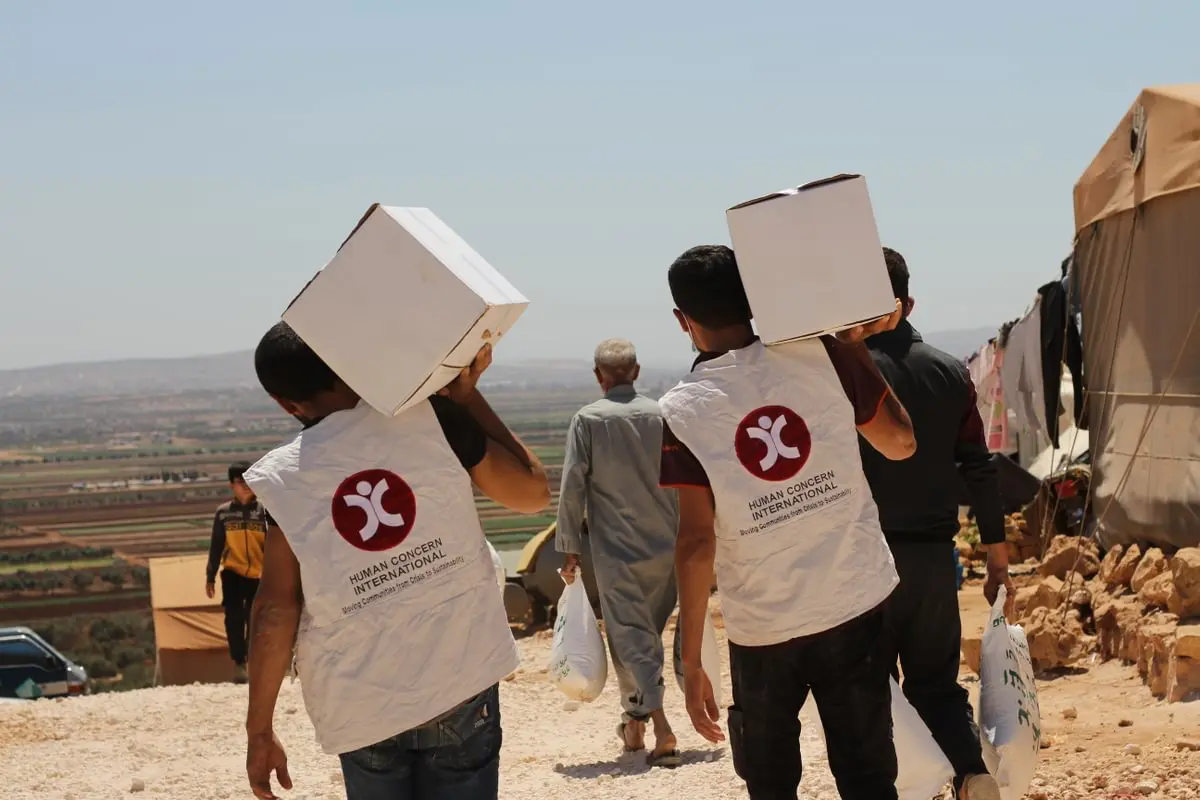




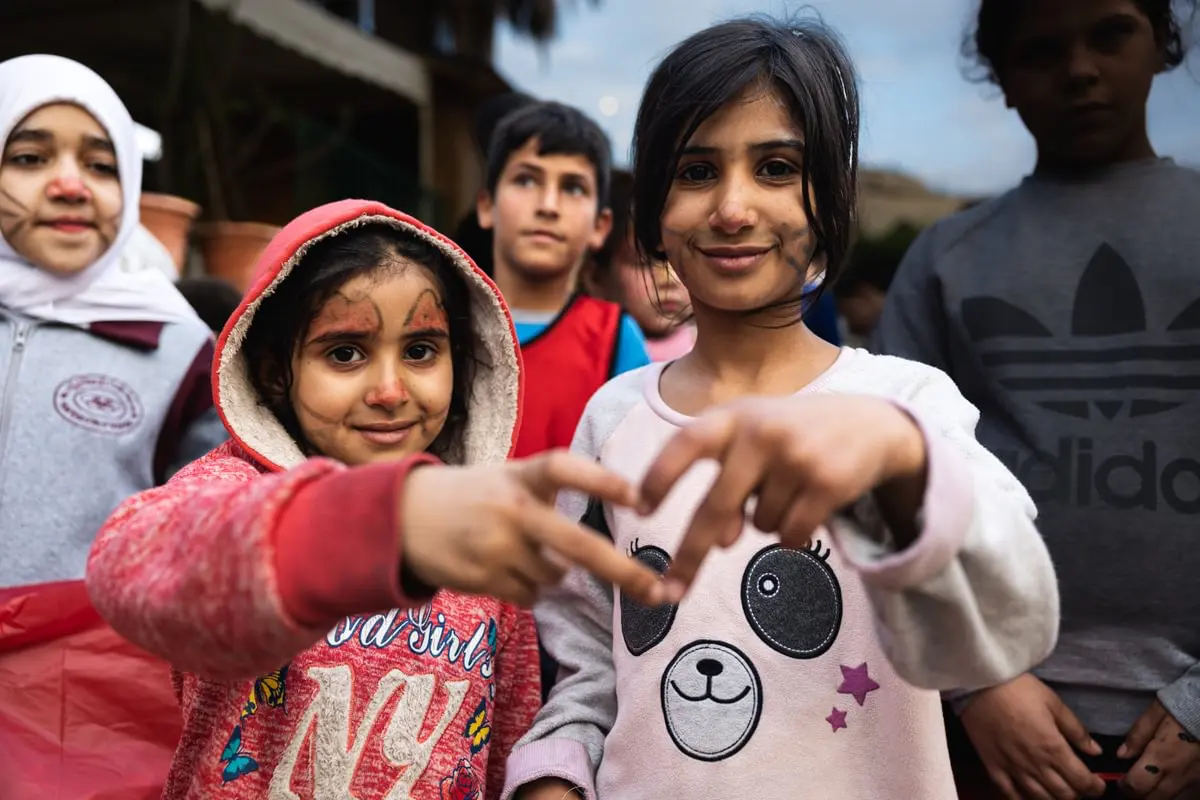
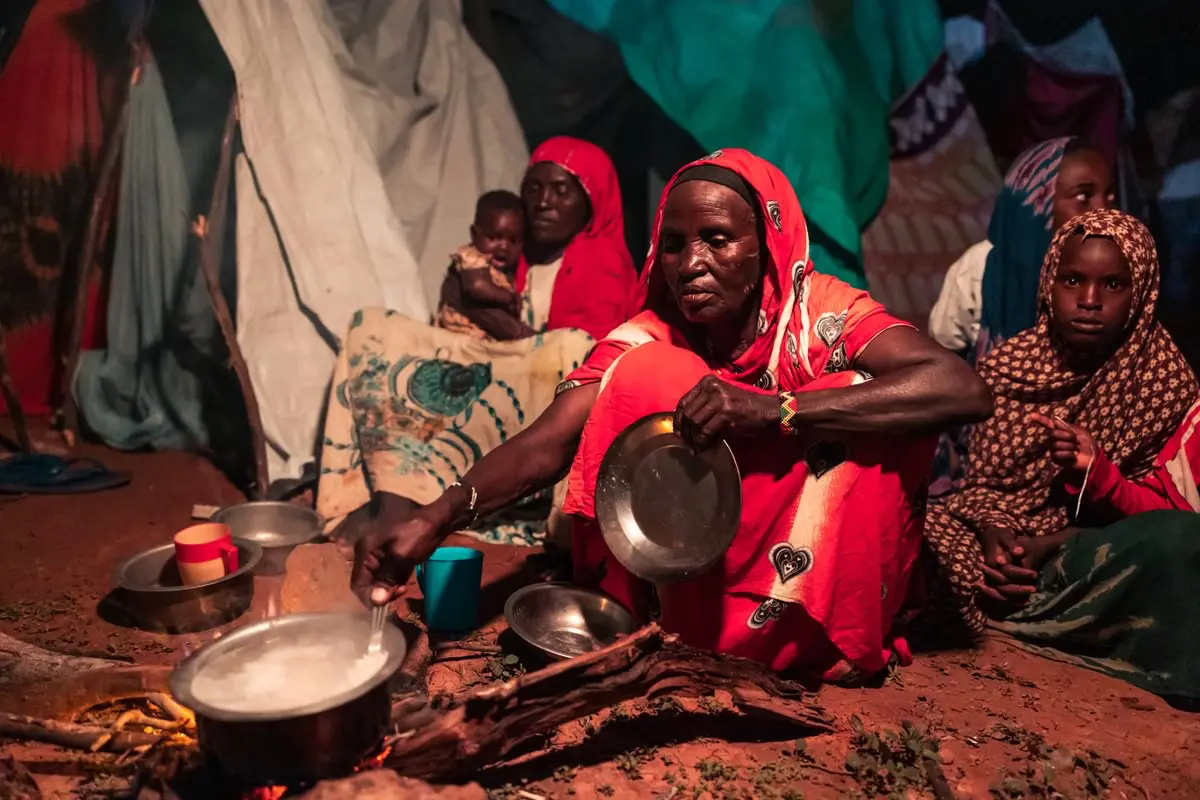
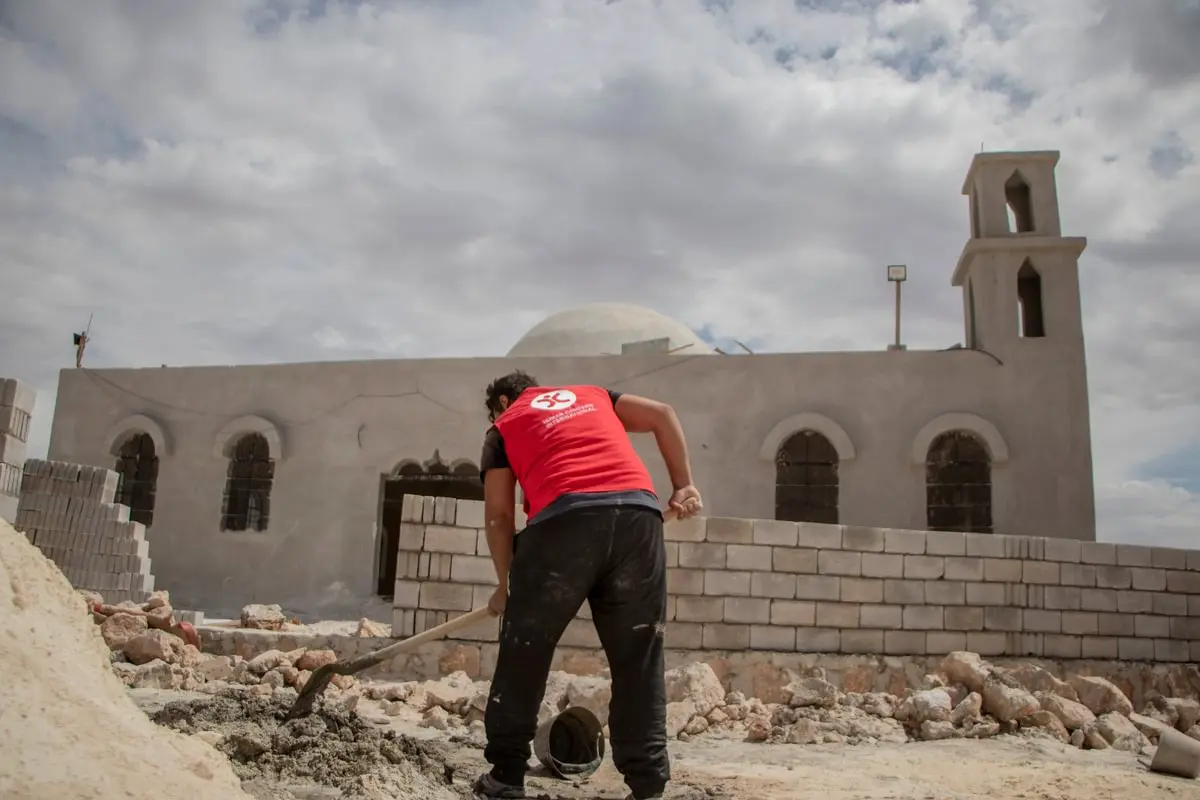
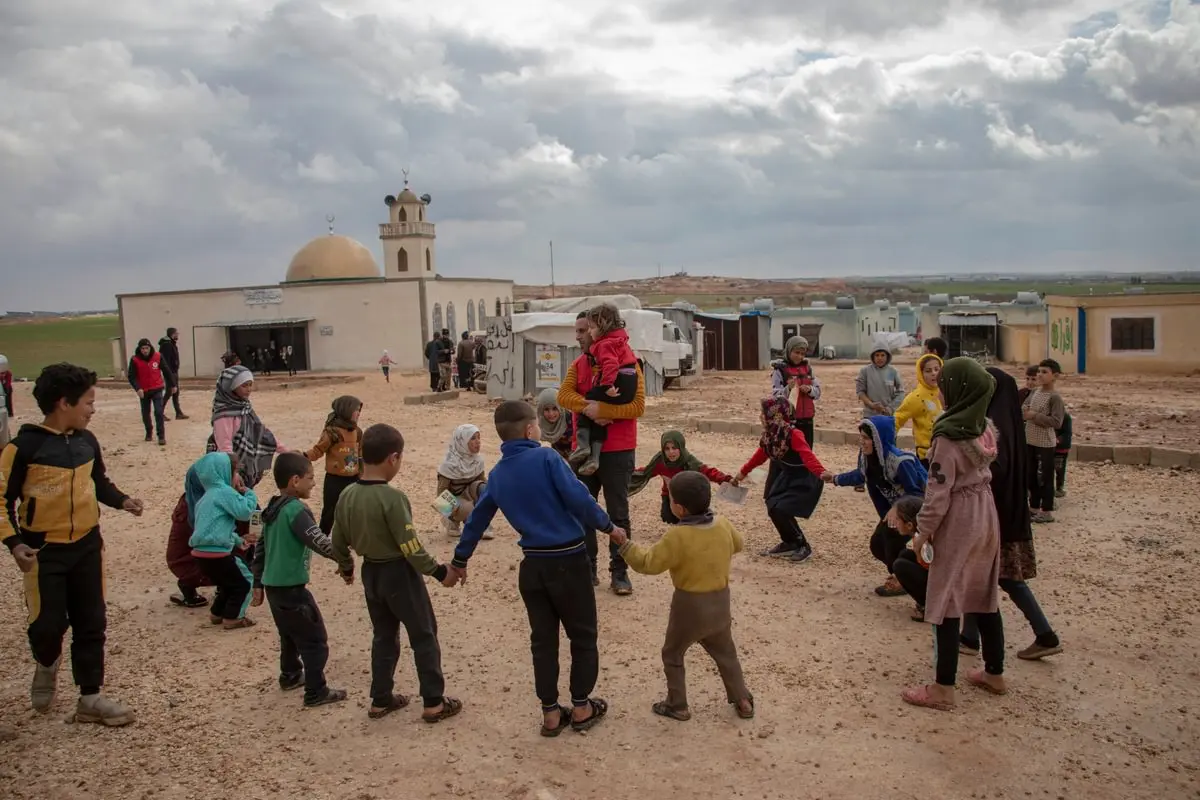


Human Concern International is the oldest Muslim relief organization in Canada, fighting poverty for over 40 years. We are a registered charity with the CRA. Charitable Registration No. 107497125 RR 0001